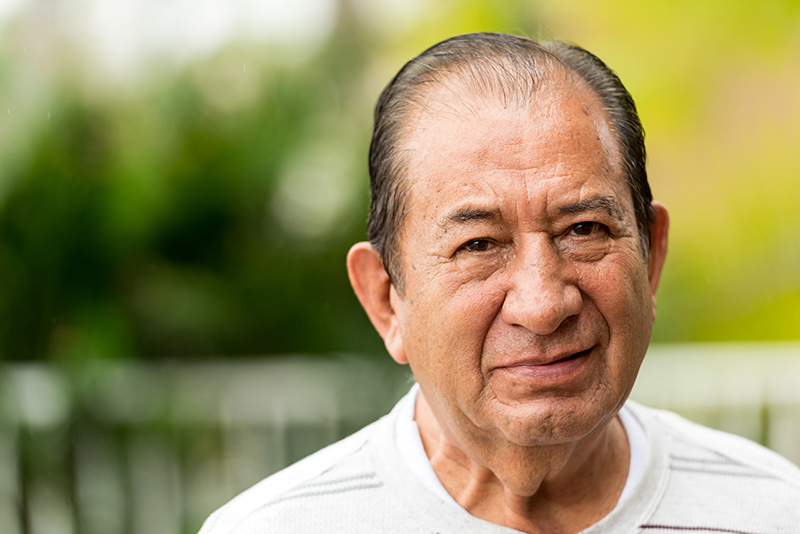Healthy Living Tips for Men

June 15 to 21 is Canadian Men’s Health Week, an opportunity to shine a spotlight on men’s health issues and promote healthy living. This awareness week is presented by the Canadian Men’s Health Foundation (CMHF), a not-for-profit organization based in Vancouver, B.C. It aims to inspire men to adopt healthy lifestyle habits that can have a positive long-term impact on themselves, their families and their communities.
“Canada is among the world’s healthiest countries, but research shows that many Canadian men face health challenges due to habits such as poor eating, inactivity, high levels of stress and social isolation,” the CMFH website explains.
Men’s health challenges
Here’s a snapshot of Canadian men’s health:
- In Canada, life expectancy for men is 80 years – four years less than for women.
- Men are more likely to be overweight or obese than women.
- Men are more likely to die of cancer, heart disease or diabetes at younger ages.
- Rates of mental illness are similar between men and women, but men are less likely to recognize it, discuss it or seek treatment. Just 30% of people using mental health services are male.
- Men are less likely than women to have a family doctor.
- Men are more likely to engage in high-risk drinking.
- More men than women are smokers (18.6% and 13%, respectively).
- Three-quarters of men don’t eat healthy food.
- A third of men don’t get sufficient sleep.
- More than 80% of men do not exercise enough.
Is it time for a check-up?
Another concern is that many men are reluctant to see a doctor. In 2019, a Cleveland Clinic survey conducted in the United States found that 72% of men would rather do household chores than go to the doctor. About two-thirds “tend to wait as long as possible to see their doctor if they have any health symptoms or an injury,” and 20% admitted to not being completely honest with their doctor in the past. The top reasons that men held back information were embarrassment, feeling uncomfortable, and not wanting to be judged. Other reasons included not wanting to know about health problems, not wanting to be told to make lifestyle changes, and thinking that a problem would resolve itself.
Small changes = big impact
The good news is that men can do a lot to improve their health and well-being. “Only 30% of a man’s overall health is determined by his genetics. Seventy percent is controllable through lifestyle,” says the CMHF.
Major health organizations offer similar encouragement about reducing risk factors. For example:
- The Canadian Cancer Society says that four in 10 cancer cases are preventable. The top five things people can do to reduce their cancer risk are: 1) live smoke-free; 2) move more, sit less; 3) have a healthy body weight; 4) eat well; and 5) practice sun safety.
- Heart and Stroke says that eight in 10 cases of premature heart disease and stroke are preventable with healthy lifestyle behaviours.
- Diabetes Canada says that people can significantly reduce their risk of developing type 2 diabetes by making lifestyle changes: eating a healthy diet, moving more and losing excess weight.
- The Alzheimer Society of Canada says that up to half of Alzheimer’s cases worldwide may result from nine modifiable risk factors, many of which overlap with risk factors for cardiovascular disease: high blood pressure, smoking, diabetes, high cholesterol, obesity, lack of physical activity, and poor diet.
Step by step
Don’t attempt to overhaul your lifestyle overnight. Changing habits takes time – start small and be patient. Build on your successes and keep setbacks in perspective. Take advantage of the wide range of health resources available (see our list below), and enlist your physician as your partner in health. Keep up with routine screenings and check-ups. Over time, you’ll notice a positive difference in how you feel, physically and mentally.
Additional resources
Resources (Men’s Health Foundation)
Don’t Change Much (Men’s Health Foundation)
Canada’s Physical Activity Guide to Healthy Active Living (Public Health Agency of Canada)
Just for Men – Stay Healthy Over 50 (Dietitians of Canada)
Heads Up Guys (mental health)
QuitNow Men (smoking cessation)
Bayshore Home Health offers a wide range of home care services to help Canadians live independently for as long as possible. Contact us at 1-877-289-3997 for details.
